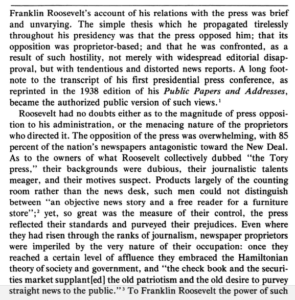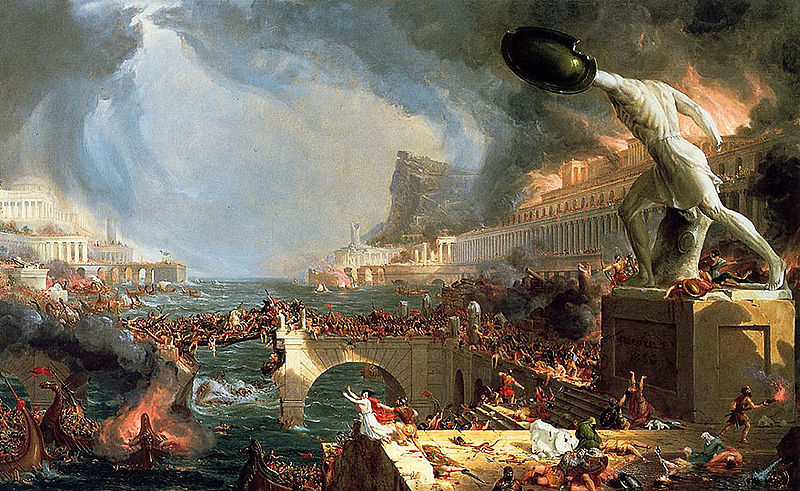
Jeremy Corbyn
Commenter Mark From Ireland once relayed that, for an older generation, the idea that newspapers or the media were honest was greeted with scorn.
A study from last year found that only 11 percent of newspaper articles presented Labour leader Jeremy Corbyn’s views without alteration.
I hope you’re shocked by that number. It means that newspapers were lying about Corbyn’s views almost 90 percent of the time.
Cases like this are common, though rarely this extreme. When people talk about how the Fourth Estate is essential to the functioning of democracy, I laugh. A media which lies 89 percent of the time is worse than no media at all.
72 percent of Americans didn’t wind up thinking Iraq was behind 9/11 in the run up to the Iraq war because the media called out the Bush administration’s misleading statements, but because they amplified them.
The media has its own agenda. If it agrees with a politician, it will amplify his voice; if not, it will attack savagely. You can see this with Trump, in highlight. The media savaged Trump for his Muslim ban, but they cheered on his missile attack on a Syrian airbase.
Someone like Corbyn is far more of a threat to the powers that be than Trump could ever be. Corbyn wants to re-nationalize vast chunks of the British economy. Trains are a good example, and before you get on your privatization high-horse, the facts are simple: Privatized trains cost more, have higher debts, still require government subsidies and have worse service. They are more expensive and worse on all significant metrics.
Much like privatized medicine, which, by the way, has been proceeding under the Tories per the usual plan: De-fund public healthcare and invite in “private partners” to help. Richard Branson, for example, who bought and fucked up British trains, is involved in health care in the UK.
Corbyn also, as Mandos pointed out, doesn’t believe in bombing people.
Horrors! He is against using nuclear weapons and has said he would never do so.
This man is a serious goddamn threat to how things are done. My God! He wants to build huge amounts of council housing, so that ordinary people don’t have to pay usurious prices and service mortgages.
What would the UK economy be without peons servicing overpriced mortgages?
A UK economy with a lot less fat bankers, anyway.
So, if it is necessary to lie about Corbyn 89 percent of the time, well, that’s what the media will do. They are owned by a very few people, and they do what they’re told. Heck, at this point, most of them even believe in it.
As for Trump, I disagree with a great deal of his platform, but notice that he is being rewarded when he sticks to the Washington consensus (massively favorable media coverage for going after Assad) and gets negative coverage when he acts against it.
You may think that the Washington consensus is better than Trump on some things, and worse on others, and still notice what is happening and judge it to be a negative that the media and deep state (who are together on this) are working so hard to stop a President doing what he was elected to do.
The media campaign against Corbyn has worked. I judge this not by the poll numbers, though they are bad, but by the fact that “casual left-wingers” think he’s a dud. Whenever I interrogate them, their reasons are weak, even wrong. But for a normal consumer of news who isn’t digging, who assumes that the news is essentially correct, the impression is terrible. It’s one fuck up after another.
For example, a little while ago Corbyn released his taxes and the coverage was that he had cheated.
He hadn’t. Some outlets corrected those stories (which no one sees) and most didn’t, and the damage was done.
Lie. Lie. Lie.
And so a man whose policies would cost billionaires massively, who would fund health care, and give wheelchairs back to cripples, is unpopular in the face of someone as monumentally as incompetent and vile as May.
Break them up. Shatter them into a thousand pieces. Enforce ownership rules. Make many of them into cooperatives. And drive their owners into the ocean, wailing in terror. It is what they have earned.
And it will be nearly impossible to have a good society so long as they retain their power.
The results of the work I do, like this article, are free, but food isn’t, so if you value my work, please DONATE or SUBSCRIBE.



